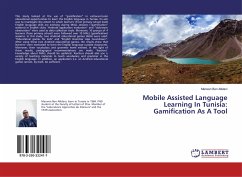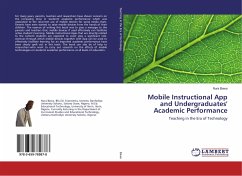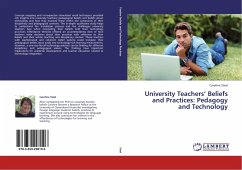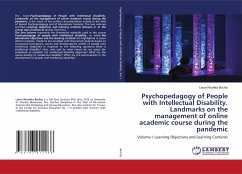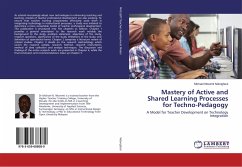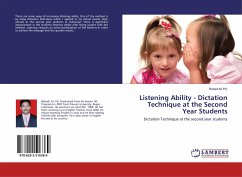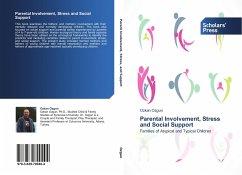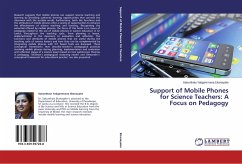
Support of Mobile Phones for Science Teachers: A Focus on Pedagogy
Versandkostenfrei!
Versandfertig in 6-10 Tagen
47,99 €
inkl. MwSt.

PAYBACK Punkte
24 °P sammeln!
Research suggests that mobile phones can support science teaching and learning by providing authentic learning opportunities that connect the classroom with the outside world. Furthermore, both the functions and the attributes of mobile phones offer a variety of opportunities to enhance the effectiveness of science teaching and learning. Recognizing the potential offered by mobile phones, the focus of this book is on issues of pedagogy related to the use of mobile phones in science education in Sri Lanka, throughout the teaching cycle, from planning a lesson, implementation in the classroom to...
Research suggests that mobile phones can support science teaching and learning by providing authentic learning opportunities that connect the classroom with the outside world. Furthermore, both the functions and the attributes of mobile phones offer a variety of opportunities to enhance the effectiveness of science teaching and learning. Recognizing the potential offered by mobile phones, the focus of this book is on issues of pedagogy related to the use of mobile phones in science education in Sri Lanka, throughout the teaching cycle, from planning a lesson, implementation in the classroom to evaluation and reflection. The functions and attributes of mobile phones that are useful during the teaching cycle of science lessons and how they can be complemented by integrating mobile phones with ICT based tools are discussed. Three conceptual frameworks that describe teacher s pedagogical practices involving mobile phones during planning, implementation and evaluation and reflection stages of a science lesson based on two well-known theories in pedagogy, Shulman s pedagogical reasoning model and Alexander s conceptual framework for educational practice are also presented.



